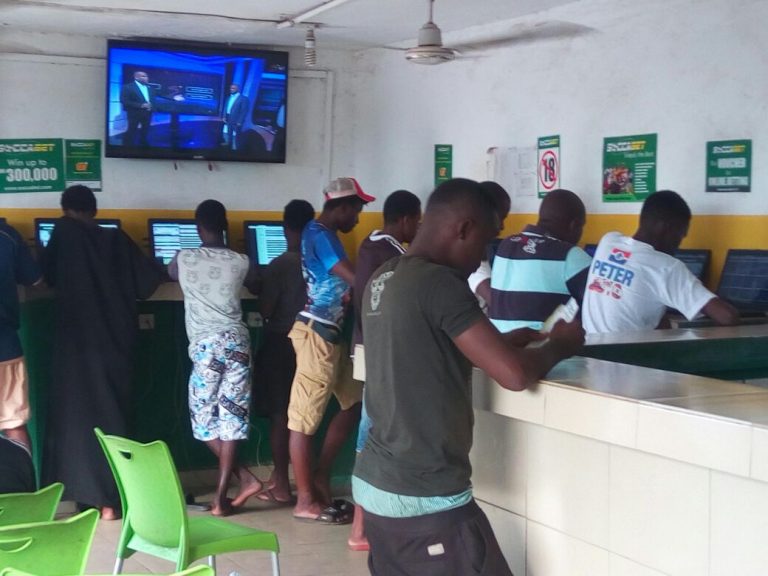Ghana’s betting industry is experiencing an unprecedented boom, with rapid growth across various forms of gambling, including sports betting, online and landed casinos, remote interactive games, and route machines. According to the Gaming Commission of Ghana, the country currently hosts 25 sports betting operators, 12 online casinos and 24 landed casinos, among others.
A 2023 survey by TGM Research revealed that 41.7 per cent of Ghanaians engaged in sports betting over the past year, ranking the country among the top four in Africa for betting participation.
This explosive growth has sparked intense public debate. Advocates highlight the sector’s economic contributions, while critics point to its potential social harm, particularly among the youth. This article explores the opportunities and risks associated with the industry and proposes strategies for sustainable management.
Opportunities
1. Revenue Generation
The betting industry has become a vital source of government revenue. Licensing and operational fees are substantial, with sports betting companies paying $120,000 annually and $1000 for each key employee employed. Also, online casino operators contribute $80,000 annually. Additionally, betting companies pay a 20% tax on gross profits, unlike taxation of companies in other industries where operational expenses are allowable deductions before corporate income tax is applied.
The recent introduction of a 10 per cent withholding tax on winnings has further bolstered government income, generating over GHS 15 million in its first month, August 2023, of implementation according to the Domestic Tax Revenue Division of the Ghana Revenue Authority. These funds significantly support national development initiatives.
2. Employment creation
The industry directly employs thousands more in roles ranging from IT and marketing to compliance and customer service. This diversification of employment opportunities is a critical benefit for a country grappling with high
unemployment rates.
3. Corporate Social Responsibility (CSR)
Betting companies have emerged as key sponsors of sports and community projects. For instance, betPawa’s $6 million sponsorship of the Ghana Premier League has revitalized local football in Ghana.
In times of crisis, these companies have stepped up with CSR initiatives. During the Akosombo Dam spillage in 2023, betting companies, through the Ghana Association of Sports Betting Operators (GHASBO), donated essential relief items to affected communities. Additionally, 22Bet recently constructed mechanized boreholes for two communities in the Central and Volta regions, showcasing the industry’s commitment to social impact.
4. Entrepreneurial Opportunities
Betting companies fuel the growth of SMEs through partnerships with telcos, fintechs, media outlets, and marketing agencies. These collaborations stimulate local businesses and create a ripple effect of economic benefits across multiple sectors.
RISKS
1. Problem Gambling
Gambling addiction is a growing concern, particularly among the youth. Cases of financial mismanagement and theft linked to betting highlight its devastating effects. For example, a 32-year-old accountant was jailed for embezzling over GHS 40,000 from his employer, which he used for unsuccessful bets. Similarly, a worker in Hohoe lost GHS 139,000 belonging to his employer through sports betting.
2. Economic Drain
Excessive betting diverts household income from essential needs, reducing savings and investments. Betting companies often repatriate a significant portion of their profits to their home countries, resulting in capital flight—a net outflow of money from Ghana’s economy to foreign economies. Capital flight also places pressure on Ghana’s foreign exchange reserves. As betting companies repatriate profits, the demand for foreign currencies (such as dollars or euros) increases, which can weaken the Ghanaian cedi and contribute to inflation.
While betting companies contribute through taxes and CSR initiatives, these contributions represent only a fraction of the profits generated. The majority is sent abroad, reducing the amount of money that could have been reinvested locally to stimulate the economy.
3. Regulatory Challenges
The rapid growth of the industry has outpaced regulatory capacity. While the Gaming Commission has implemented strict guidelines, illegal operators and unregulated platforms remain a threat.
Unregulated gambling platforms bypass taxation and licensing requirements, depriving the government of significant revenue. For instance, illegal operators evade the 20% gross profit tax imposed on legitimate betting companies, as well as withholding tax on winnings.
Unregulated platforms can be exploited for money laundering and other financial crimes. These entities often operate outside the reach of Ghanaian authorities, making it difficult to track transactions and enforce anti-money laundering measures. Players using unregulated platforms risk losing their money to scams, as these platforms lack accountability and oversight.
The prospect of instant riches often entices young individuals to prioritize gambling over long-term investments in education and skill development. Many abandon schooling or jobs in the hope of striking it big, resulting in a cycle of unrealized potential and financial instability. Anecdotal evidence and media reports have highlighted cases of young people dropping out of school or neglecting apprenticeships due to their fixation on gambling.
STRATEGIES FOR BALANCING OPPORTUNITIES AND RISKS
1. Promote Responsible Gambling
The Gaming Commission’s recent Responsible Gaming Awareness Month is a commendable step.
However, sustained campaigns are needed to educate the public about the risks of gambling. Betting companies should invest in self-exclusion programs, counselling services, and hotlines to support those affected by gambling addiction.
2. Strengthen Regulatory Frameworks
The government must enhance its regulatory mechanisms to eliminate illegal operators and ensure fair practices. Aligning Ghana’s policies with global best practices will help address the industry’s unique challenges while safeguarding vulnerable populations.
3. Invest in Youth Empowerment
A portion of betting revenue should be allocated to skills development and entrepreneurship programs. By equipping young people with alternative sources of income, the government can reduce their reliance on betting as a livelihood.
Conclusion
The betting industry in Ghana is a double-edged sword. It contributes significantly to revenue generation, job creation, and technological advancement but also raises serious concerns about addiction, economic instability, and youth vulnerability.
To harness its potential while mitigating its risks, stakeholders—including the government, industry players, and civil society—must work together. Through robust regulation, responsible practices, and strategic investments in social development, the betting industry can play a meaningful role in Ghana’s economic growth and societal well-being.
Author:
Dickson Assan, CA, MSc. BSc.
Accountant & Compliance Manager
Lantini Limited
+233242771314
















